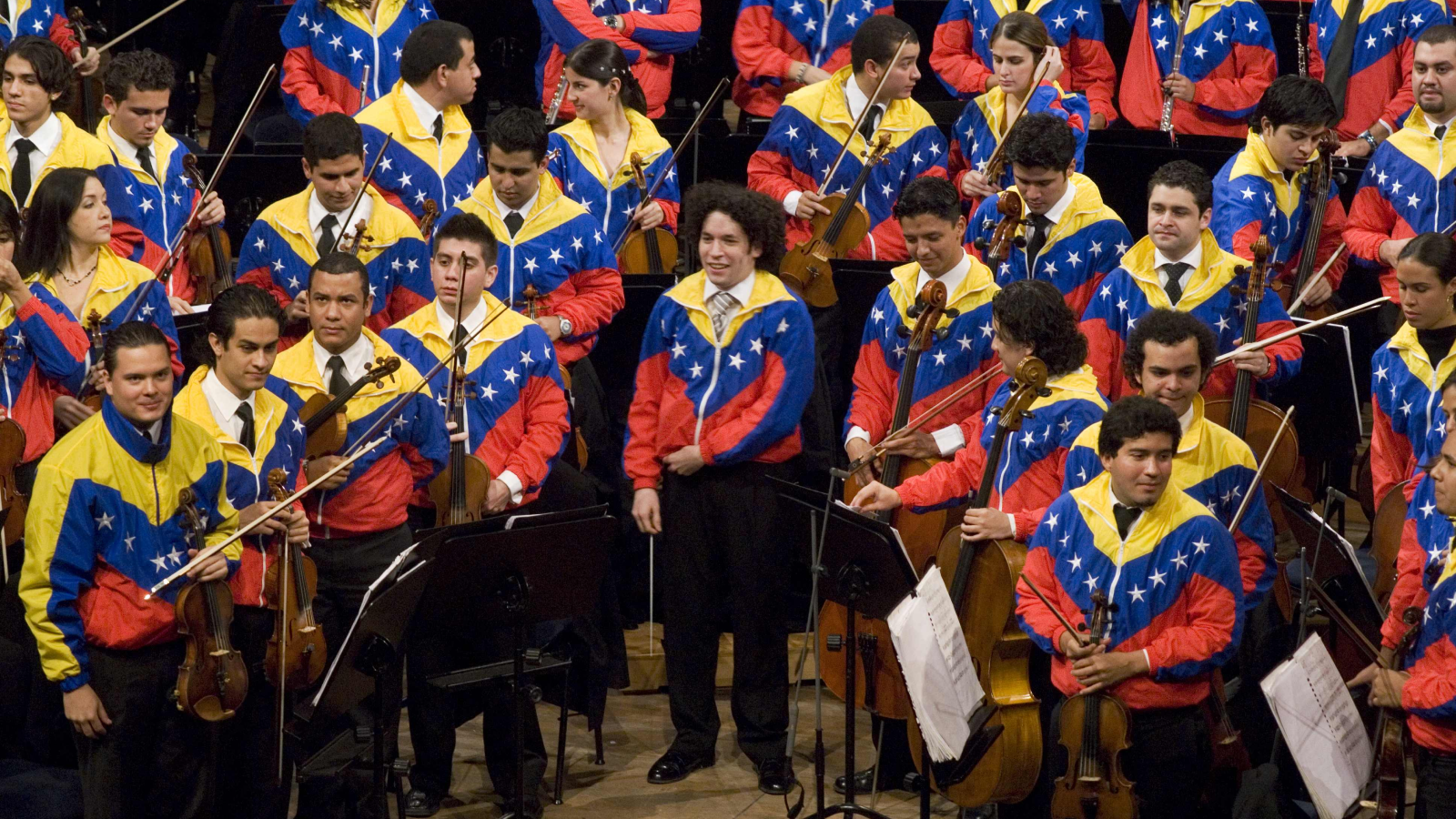Sir Andrew Davis: Remembering a Conductor’s Conductor
We remember Sir Andrew Davis, a true maestro whose life in music touched hearts globally. From the Royal College of Music to the world’s grea...

Gustavo Dudamel, the revered conductor, reunites with the Simón Bolívar Symphony Orchestra in a heartfelt performance at the Edinburgh International Festival. This performance marked not just a musical reunion, but a profound emotional connection between a maestro and his ensemble.
On a balmy Saturday evening at Usher Hall in Edinburgh, Gustavo Dudamel stood at the helm of the Simón Bolívar Symphony Orchestra of Venezuela. As the first notes soared, the audience’s applause echoed their appreciation.
Yet, it was not just another night of music. It was a night of reunions. The stage radiated not only with the brilliance of the music but also with the undeniable emotion of an awaited reunion. After all, it had been since 2017 that Dudamel last joined this 140-strong ensemble. That year, he had spoken out about the pressing social and political challenges facing Venezuela, leading to his travel restrictions to the country.
For Dudamel, who has been leading this orchestra since 1999, the evening was steeped in nostalgia. He had seen many of these musicians grow within the nurturing confines of El Sistema, Venezuela’s iconic music education initiative. “Reconnecting with them, playing music with them – it’s akin to finding a piece of my own soul. A landmark moment for us,” shared Dudamel in a heartfelt conversation over the phone.
Abner Padrino, a dedicated cellist of the ensemble, mirrored these sentiments. “It feels as if we’re experiencing a renaissance,” he expressed, the enthusiasm evident in his voice. Similarly, violist Kira Riera highlighted Dudamel’s positive influence on the orchestra, saying, “With him, it feels as if the clouds over Venezuela are parting, revealing a glimmer of hope.”
Dudamel’s last performance with the orchestra was in 2017 during a European tour. Yet, following disturbing events in Venezuela, including the unfortunate demise of an El Sistema-trained musician during protests, Dudamel felt compelled to speak against the political situation. These actions led to consequences, with the government cancelling subsequent tours involving Dudamel and the orchestra.
Challenging times ensued. The orchestra faced upheavals with many musicians relocating due to the country’s instability. However, Dudamel stayed connected, through calls and video conferences, providing an anchor in the storm. On his return to Venezuela the previous year, he rekindled bonds with the orchestra, leading a rehearsal in Caracas. His subsequent visit saw them rehearsing Beethoven’s “Fidelio,” tailored for both hearing and deaf audiences.
Dudamel acknowledged the shifts in the Venezuelan political landscape that allowed his return. However, he emphasized the journey ahead, saying, “The road to stability and progress is long, but it’s one we’re determined to tread.”
Furthermore, Dudamel’s passion for music education was evident in Edinburgh. He interacted with the Big Noise program, a Scottish initiative inspired by El Sistema. At a festival, he reflected on El Sistema’s legacy, emphasizing its role beyond politics, viewing it as a vital societal element.
As Dudamel summarized, “Art, and particularly music, is the very fabric of society. My dream is to see music recognized as a fundamental right, transcending borders and politics.”
We remember Sir Andrew Davis, a true maestro whose life in music touched hearts globally. From the Royal College of Music to the world’s grea...
In the world of classical music, where the past is always present, one name stands out for breathing new life into forgotten melodies. Philippe Jar...
Klaus Mäkelä, a name synonymous with orchestral brilliance, is set to take the baton from Riccardo Muti as the Chicago Symphony Orchestra’s...
In the world of contemporary music, few names resonate as profoundly as that of Eötvös Péter. A maestro whose life was a rich tapestry of melody...